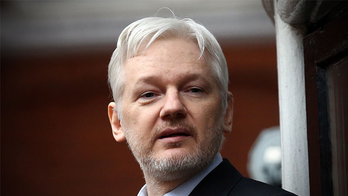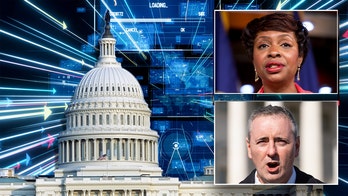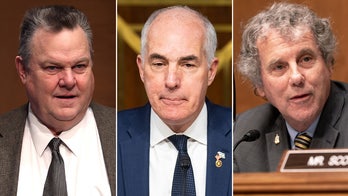The CEOs of the Big Three automakers faced the lingering skepticism of lawmakers during a second round of hearings on Capitol Hill Friday, as they pleaded for billions of dollars in emergency aid as way to help them weather the financial crisis.
The testimony came as a new Labor Department report showed employers slashing a historic number of jobs in November. The report showed employers cut 533,000 jobs, the most in 34 years, and that the losses had brought the unemployment rate to 6.7 percent.
U.S. Rep. Barney Frank, D-Mass., said Friday that the jobs numbers add urgency to the industry's request.
"I hope we will do something, because I think for us to do nothing, to allow bankruptcy or failures for one, two or three of these companies ... would be a disaster," said Frank, chairman of the House Financial Services Committee, which was hearing testimony Friday.
President Bush, reacting to the jobs figures, said he was concerned about the viability of the auto companies, and that some may not survive. He said any bailout must ensure that taxpayer money is paid back, but that, "It is important that Congress act next week," preferably using money Congress appropriated last fall.
But the heads of General Motors, Ford and Chrysler faced scolding Friday from lawmakers, some of whom are leery of the companies' promises to pay back the money they're asking for -- $34 billion in loans and lines of credit, up from $25 billion last month.
"I'm concerned that businesses are rightly going to start thinking that they can just come to Uncle Sam to bail them out, and we're broke," said Republican Rep. J. Gresham Barrett, S.C.
Republican Rep. Donald Manzullo, Ill., said the automakers' proposals were "woefully insufficient" because they did not address consumer demand.
Republican Rep. Spencer Bachus, Ala., though, endorsed the possibility of "limited, transitional assistance" on behalf of the government that puts the onus on the auto industry to return itself to profitability.
"What we need is a solution, not a first installment," he warned.
The CEOs pledged, as they did before the Senate Banking Committee on Thursday, to mend their ways, put more focus on fuel-efficient vehicles and engineer a more efficient business model. They pitched the bailout money as a bridge to help them weather the economic crisis on the road to profitability.
"I recognize that this is a significant amount of public money," said Chrysler CEO Robert Nardelli. "However, we believe this is the least costly alternative considering the depth of the economic crisis and options we face."
Ron Gettelfinger, president of the United Auto Workers union, urged Congress to approve an emergency bridge loan, and said there is "not enough time" for Congress to hammer out a complete restructuring plan in the coming weeks.
Under one plan, the government would order a major restructuring of Detroit's struggling Big Three auto companies in exchange for the multibillion-dollar bailout.
Finding the money was proving to be an uphill battle. Congressional budget analysts said one leading proposal -- to use an already approved fund set aside for making cars environmentally efficient -- would provide just $7.5 billion, a fraction of what GM, Ford and Chrysler say they need.
Senate Majority Leader Harry Reid released a written statement Friday saying the new jobs numbers mean lawmakers must act quickly.
"Congress has an obligation to keep this dangerous situation from getting worse. Inaction is not an option," he said.
"We're looking at a death sentence" for the auto companies, Sen. Chris Dodd, D-Conn., the Senate Banking Committee chairman, said Thursday, pledging to try to help the Big Three. He quickly added, "I'm not a miracle worker and no one here is."
Chrysler President Jim Press on Friday suggested the market for the Big Three's cars could evaporate quickly without emergency aid.
Democratic congressional leaders are leaning on President Bush to tap into the already enacted $700 billion Wall Street bailout fund to aid the auto industry, arguing that a carmaker collapse would have a devastating impact on the financial firms the program is designed to help.
The Bush administration has said it has no intention of doing so, arguing that the money was supposed to be for financial institutions, and instead wants to convert the fuel-efficiency money into emergency loans.
The Associated Press contributed to this report.




